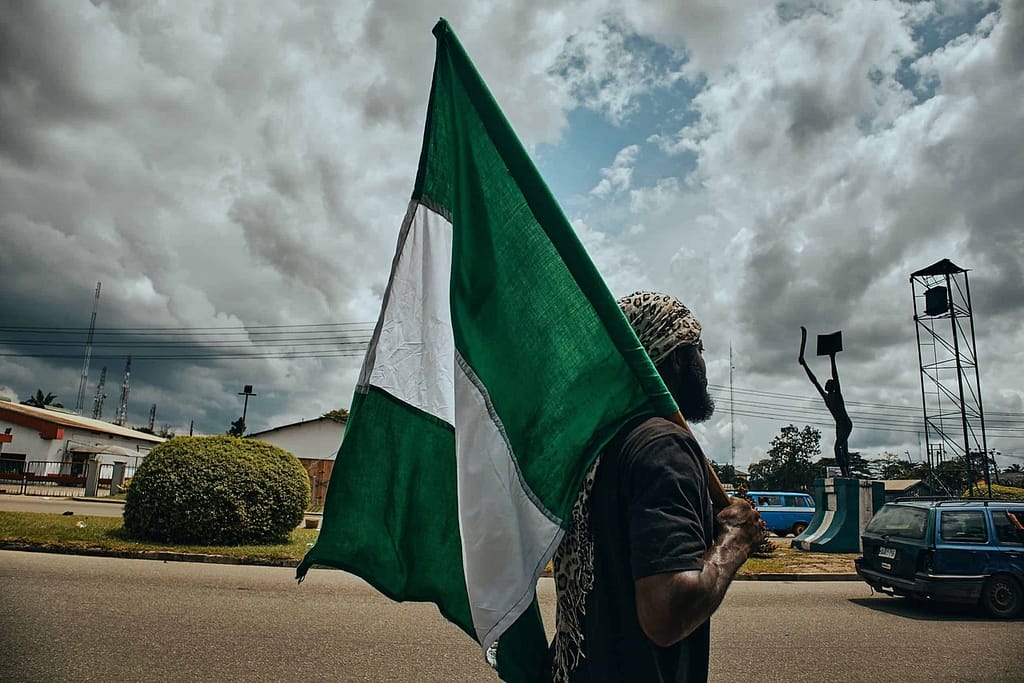As the year draws to a close, it feels as if we’re now in the business end of election season. Verbal shots have been fired, promises have been made, and outfits have been changed quicker than a contestant at a Miss World pageant.
All of this is par for the course in Nigerian politics, and even more so when elections are looming. Patchwork loyalties are held together by pieces of string and the precarious glue of patronage. But once an election comes into view, the ties holding politicians and party together unravel faster than you can say carpet crossing.
One prime example of the shifting of party support is that of Femi Fani-Kayode, formerly of NRC, formerly of PDP, now defender-in-chief of APC. As recently as 2017, FFK described Kassim Shettima, who’s Bola Tinubu’s running mate on the APC ticket, as “murderous, evil scum”. And he warned President Buhari about Tinubu’s apparently perfidious nature. However, that was then, and this is now, and the Tinubu/Shettima ticket as far as he’s concerned might as well be the second coming. FFK has defended himself saying he would not apologise for the “position” he took back then. The word position is curious in its use, almost suggesting truth is irrelevant, it’s one’s position/opinion that matters. Murderous evil scum can become angels overnight.
The changing outfits of the campaign trail is always one of the more somewhat endearing features of election season. For example, Atiku Abubakar wearing a red cap and isiagu in Anambra. You have Peter Obi visiting the Olubadan in Oyo, wearing the pointiest of pointy filas, or Bola Tinubu also in isiagu in Ebonyi state. It’s a reminder of the huge religious and ethnic diversity of Nigeria, and the number of varying and sometimes conflicting interests which need to be balanced in the quest to lead the country. And since it’s become a three horse race, no region can be taken for granted, and no votes can be dismissed. This could be the election where truly, every vote counts.
The week also saw the concluding part of Stears’s look at the manifestos of the various parties. A quick google of “broken promises” and “Nigeria” throws up 543,000 results. I even came across an article from the Sun, which had the phrase “although Nigerians are used to fake electoral promises,” ouch. Stears took a favourable view of the Labour Party manifesto, but not so much their columnist Feyi Fawehinmi, a few days later. These are behind a paywall, so please throw in your coins and contribute – good journalism isn’t free. And seek out their analyses of the other manifestos.
On TV, Nancy Iloh of AIT also brought on Kelechukwu Ogu of SBM Intelligence to have a look at the manifestos. His reaction to the APC pledge of 12% GDP growth for the next four years was incredulity, “that’s outrageous,” he said. China did achieve five years of double digit growth in the 2000s… but then again that was China, and this is Nigeria.
Nicholas Ibekwe has also done some of the hard yards on Twitter with some digestible morsels on the manifestos. He identifies as a [classical] liberal, so he has a particular stance, but he makes that disclosure to explain why he’s not so keen on the Labour party position, for example.
The silver lining in all of this is that no/few trees were harmed in the making of these manifestos, because they wouldn’t have been worth the paper they were printed on. For the present times, perhaps they’re not worth the data usage.
The tweet of the week isn’t at all political, or perhaps it is, seeing as it comes from the Ministry of Education. Their tweets on Coursera scholarships proved popular with more than 2,000 retweets, and 3,000 likes. For all the lack of opportunity in the country, Nigerians still see education as offering the best chance at survival. No doubt some of you would’ve seen the graduate lists of the universities of Hertfordshire in England, and West of Scotland, largely populated by Nigerian students. University of Lagos, Hertfordshire campus, is indeed apt. As a friend of mine quipped, no wonder there’s no forex in the country.

